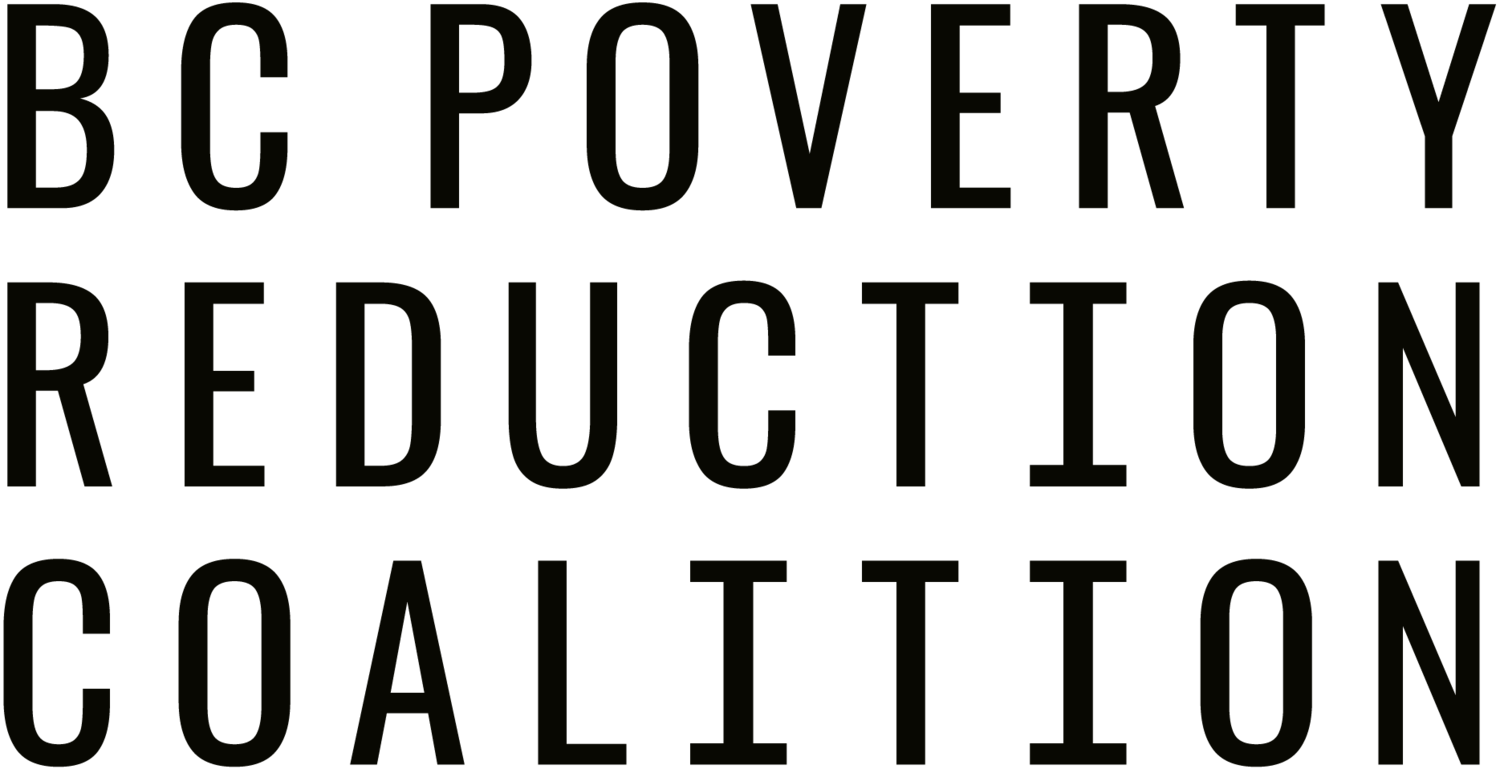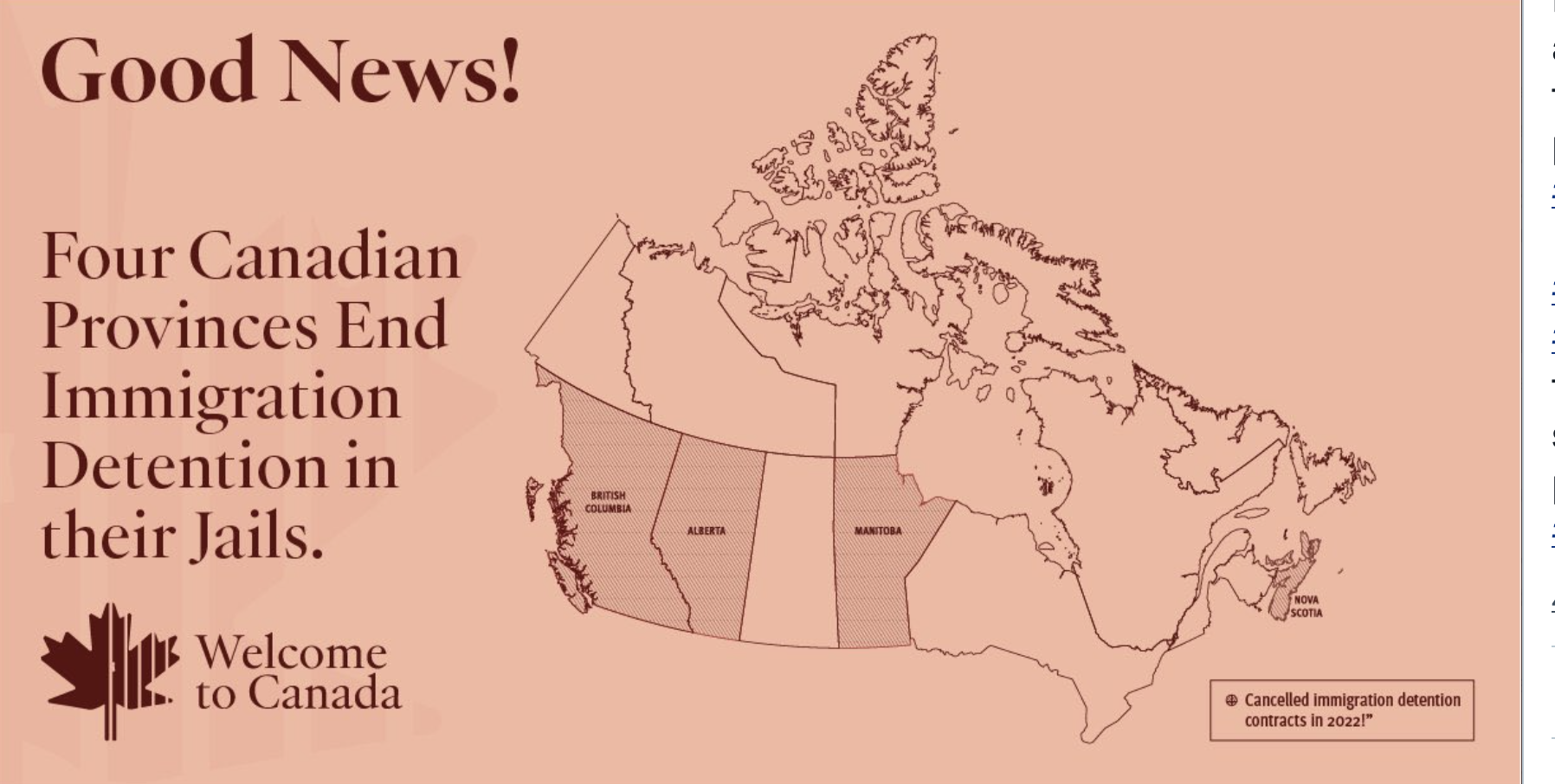Help end all immigration detention in Canadian jails
Following the success in BC, we now have seen FOUR individual provinces or territories ending their contracts with the CSBA, including BC, Manitoba, Alberta, and Nova Scotia.
Over the past five years, Canada has detained tens of thousands of people seeking safety or a better life in this country. People held in immigration detention are held for immigration purposes but endure some of the country’s most restrictive conditions of confinement, including maximum security provincial jails. The Canada Border Services Agency (CBSA) is responsible for immigration detention enforcement; the Agency has sweeping police powers but remains the only major law enforcement agency in the country with no independent civilian oversight. This has led to serious and widespread human rights violations in immigration detention.
Even though immigration detention is within federal jurisdiction, CBSA incarcerates nearly half of all immigration detainees in provincial jails. CBSA relies on contracts with provincial authorities to do this.
Following 14 days of action to end immigration in BC jails, we are now excited to turn the focus to ending the contracts at the National level.
Launching 12 Days of National ACtion calling on Trudeau to cease this practice across Canada
Day 1: November 14th - Ottawa Press Conference
Day 2: November 15th - OpEd in Globe and Mail by LLOYD AXWORTHY AND ALLAN ROCk
Day 3: November 16th - PANEL DE DISCUSSION SUR LA DÉTENTION DES PERSONNES MIGRANTES
Day 4: November 17th - BC’s Human Rights Commissioner’s Statement
Day 5: November 18th - Kinbrace Event
Day 6: November 19th - Open Joint Letter to PM Justin Trudeau
Day 7: November 20th - Faith-Based Open Letter
Day 8: November 21st - Civil Liberties Associations Joint Letter
Day 9: November 22nd - Centre for Gender and Health Equity Statement
Day 10: November 23rd - Atlantic Region Advocates Submission and Voices From Burnside Jail: Stories on Immigration Detention
Day 11: November 24th - Witness piece with Human Rights Watch
Day 12: November 25th - Halifax Refugee Clinic event with poet El Jones
Background, Coverage, and Analysis
Submission by BC’s Office of the Human Rights Commissioner
Legal Analysis of Agreements Allowing Immigration Detention in Canadian Provincial Jails
Sara Maria Gomez Lopez: I never understood why Canada detained me
Why are hundreds of immigrants languishing in Canada’s maximum security jails?
How did we get here?
· In June 2021, Human Rights Watch and Amnesty International released a joint report that called on Canada to gradually abolish immigration detention. In October 2021, the organizations launched a joint campaign, #WelcomeToCanada, calling on provincial authorities to stop allowing the federal government to incarcerate immigration detainees in provincial jails. It is through their joint campaign that BC’s Minister Farnworth has agreed to a review of the BC-Canada agreement.
· The CBSA has the sole authority to decide where immigration detainees are held, and there is no legal standard guiding CBSA’s decision to hold a detainee in a provincial jail rather than a dedicated immigration holding centre. The Agency relinquishes control over conditions of detention in provincial jails, and immigration detainees cannot challenge CBSA’s decision regarding their site of detention within detention review hearings.
· Research shows that immigration detainees who are from communities of colour are often incarcerated in provincial jails (rather than dedicated immigration holding centres), and immigration detainees with mental health conditions may be incarcerated in provincial jails (rather than immigration holding centres) specifically because of their health conditions.
· Immigration detention has devastating effects on immigration detainees, their loved ones, and communities. Since 2000, at least 16 people lost their lives in immigration detention, and most of them were incarcerated in provincial jails.
· In the three years before the Covid-19 pandemic, more than a fifth of immigration detainees–about 5,400–were held in 78 provincial jails across Canada, including in BC. Following the onset of the pandemic, CBSA has relied more heavily on provincial jails (incarcerating 40% of immigration detainees in provincial jails in fiscal year 2020-21 alone) and the average length of detention more than doubled.
Why are we targeting CBSA’s contracts?
· Canada’s practice of incarcerating immigration detainees in provincial jails is a violation of international human rights law
· Canada’s practice of incarcerating immigration detainees in provincial jails is longstanding; these contracts are decades old.
· BC’s recent cancellation of its contract with CBSA can lead to a domino effect across the country that will bring into question the very foundation of immigration detention: the criminalization of those seeking refuge or a better life in Canada.




